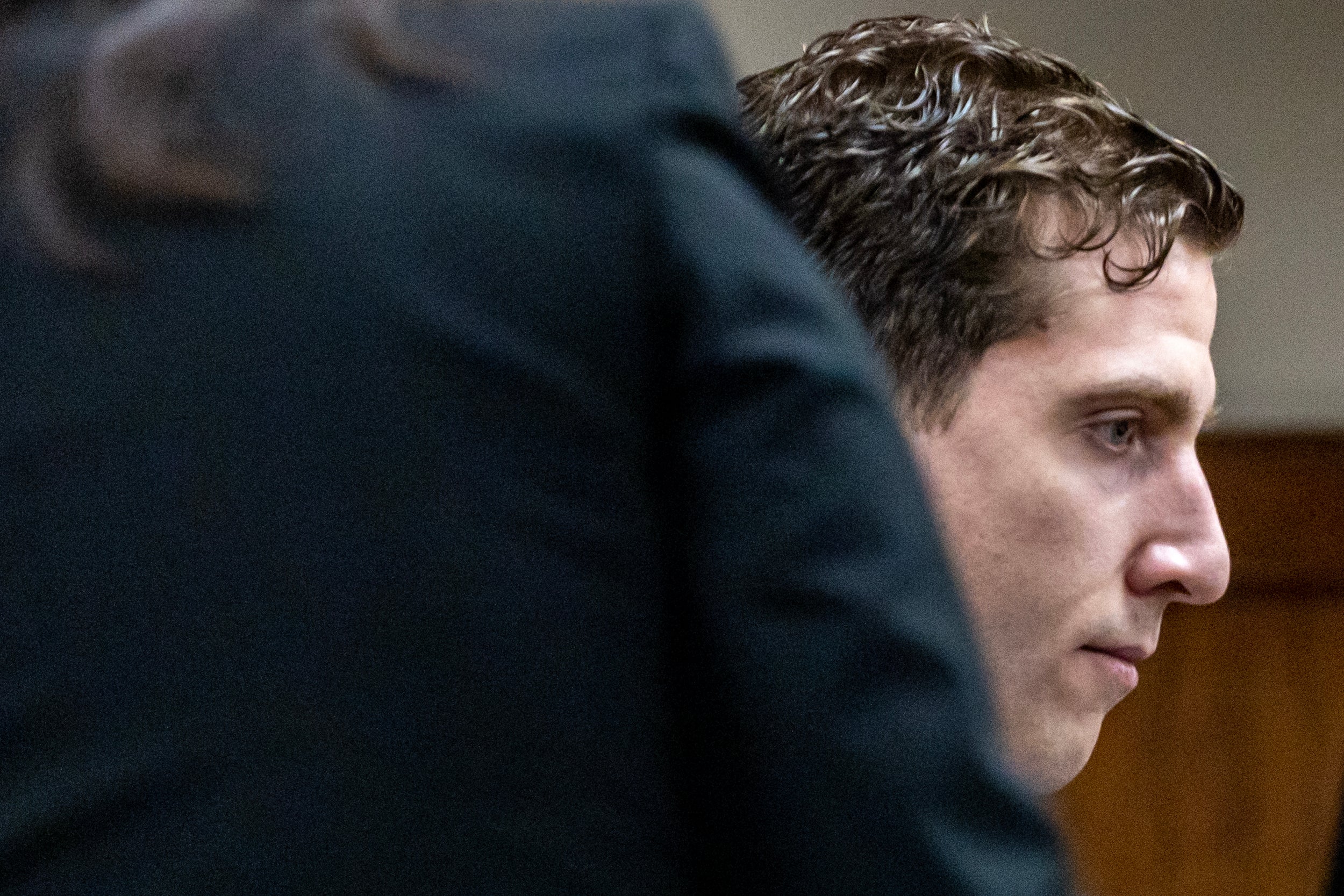Bryan Kohberger could face the firing squad for the Idaho murders. What would this mean?
A recent change in Idaho state law now means he could face the firing squad if convicted of the Idaho college murders
The man accused of breaking into a home in Moscow, Idaho, and stabbing four students to death in a shocking attack is now in a fight for his own life.
This week, prosecutors in Idaho announced that they are seeking the death penalty against Bryan Kohberger for the murders of Kaylee Goncalves, Madison Mogen, Ethan Chapin and Xana Kernodle.
In the early hours of 13 November, the 28-year-old criminology PhD student allegedly entered the off-campus student home on King Road and fatally stabbed the four students with a large, military-style knife.
Two other female roommates, who lived with the three women at the property, survived the attack unscathed inside the home.
One of the survivors came face to face with the masked killer, dressed in head-to-toe black and with bushy eyebrows, as he left the home in the aftermath of the murders, according to the criminal affidavit.
For more than six weeks, the college town of Moscow was plunged into fear as the accused killer remained at large with no arrests made and no suspects named.
Then, on 30 December, law enforcement suddenly swooped on Mr Kohberger’s family home in Albrightsville, Pennsylvania and arrested him for the quadruple murders.
The motive remains unknown and it is still unclear what connection the WSU PhD student had to the University of Idaho students – if any – prior to the murders.
The murder weapon – a fixed-blade knife – has still never been found.

In May, a grand jury returned an indictment charging Mr Kohberger with four counts of murder and one count of burglary.
While Mr Kohberger is fighting against the charges, this development – and a recent change in Idaho state law – now means that he could face the firing squad if convicted of the murders.
When did the law change in Idaho?
Idaho has become the fifth state to authorise the use of a firing squad as a method of execution.
The state’s Republican Governor Brad Little signed the bill into law in March and it will go into effect on 1 July, joining South Carolina, Mississippi, Oklahoma and Utah where the firing squad already serves as a backup method to lethal injection.
What does the new law mean?
Under the new law, the Idaho Department of Corrections will have up to five days after a death warrant is issued to determine if lethal injection is available to use for an execution, according to Death Penalty Information Center.
If the lethal injection is not available, the death row inmate will be executed by firing squad.
In recent months, death row inmate Gerald Pizzuto Jr has had his execution stayed twice because there were no available lethal injection drugs.
Under that circumstance now, the inmate would be sent to the firing squad.
Will Kohberger face the death penalty?
On 26 June, Latah County Prosecutor Bill Thompson filed a notice of his intent to seek the death penalty against Mr Kohberger, citing five “aggravating circumstances” that could warrant the maximum sentence of capital punishment being sought.
These circumstances include that the murder was “especially heinous, atrocious or cruel, manifesting exceptional depravity” and that the defendant showed “utter disregard for human life”.
“The State gives this notice based on the fact that it has not identified or been provided with any mitigating circumstances sufficient to prohibit the triers of fact from considering all penalties authorized by the Idaho legislature including the possibility of a capital sentence,” prosecutors wrote in the filing.
“Consequently, considering all evidence currently known to the State, the State is compelled to file this notice of intent to seek the death penalty.”
The Independent and the nonprofit Responsible Business Initiative for Justice (RBIJ) have launched a joint campaign calling for an end to the death penalty in the US. The RBIJ has attracted more than 150 well-known signatories to their Business Leaders Declaration Against the Death Penalty - with The Independent as the latest on the list. We join high-profile executives like Ariana Huffington, Facebook’s Sheryl Sandberg, and Virgin Group founder Sir Richard Branson as part of this initiative and are making a pledge to highlight the injustices of the death penalty in our coverage.




